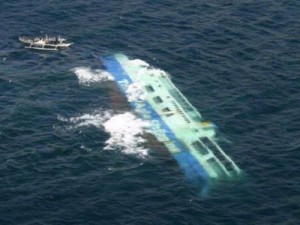By Gaure Mdee
The recent events that transpired in Zanzibar are nothing short of heartbreaking, with various parties to blame; an unstable regulatory authority, that would not step up to the plate and stop what was an obviously overloaded ferry, a crew who, through reports, beat and forced individuals against their own will to stay on the ferry and also passengers who felt obliged to get onto an overloaded vessel that was clearly in poor condition.
What is even worse is the way the media covered it.
Just over six months ago an arms depot on the outskirts of Dar es Salaam exploded leaving one too many residents of Gongo la Mboto homeless and some even residing in tents. The night of the blasts the same guilty party (Tanzanian Media) were nowhere to be heard from; simply waiting for the sun to rise, probably, like the Zanzibari president apparently did upon being informed of the ill fated water vessel.
It’s understood, yet heart-rending, that Tanzania doesn’t have an organized marine rescue system but this should not be the case with media houses when it comes to responding to such incidences. Public broadcaster, TBC, had regular programming during the day sidelining the ongoing tragedy while independent TV station, ITV, brought hourly updates as breaking news reports. The first reports actually came from Zanzibari stations and international media houses along with the ever faithful Jamii Forums for those who were online.
Two days after the sunken ferry disaster, an incident in Kenya, where a gas pipeline exploded in the industrial area of Nairobi saw “accurate” pictures and information available for all to hear and see. Now it can be debated that the incident happened in a more accessible place for factual dissemination and that the time that it happened was easier to work with but it still says something about our watchdogs from the fourth estate.
Let us remember that we were informed that Miss Ilala so-and-so is now our trophy representation for the upcoming year that should be paraded as we forget those nameless individuals who perished in what is now a national disaster.
It is also ever so disappointing that even a picture posted in relation to the story was not accurate, but rather plucked from a post on the internet by a contributor on Jamii Forums and used by various media houses on the upcoming days…

Below is a link to Njombe’s Daraja, a very well analysed piece on how the media has slipped to a point of convincing people of how unreliable they just might be:
Related Links:


I think this raises the question: To what end are media companies meant to piggy-back off eachother, and to what end are they supposed to come up with original work? In my opinion the original work factor needs to be a constant; the only piggy-backing that should be happening is on reports that are strictly only available to one source, and even that should be explicity stated in the “piggy-backed” article.
It is good they came up with an analysis regarding the traditional media because I think their other analysis criticizing the way social media reported the disaster was a bit unfair really. Perhaps there is need now to consider on how social media and the traditional media should work together particularly on incidents like this. It will help to save a lot of lives and ensure that those who need critical assistance they get it as soon possible. I also think it is time for our traditional media to start incorporating social media in their news reporting just like the western media does.
Media companies need to stop thinking they control knowledge, which is abundant, free and inherent in every human being. The moment they realize this, and see themselves as a TOOL to access SOME knowledge, they will realize that poor reporting use fruitless.